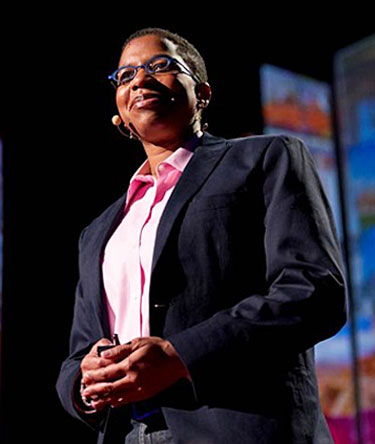Self-proclaimed science “evangelist” Ainissa Ramirez preaches a gospel focused on the importance of improving the public’s understanding of science.

Ramirez shares her message in the Lawrence University convocation “Technology’s Unexpected Consequences” Tuesday, April 3 at 11:10 a.m. in the Lawrence Memorial Chapel. She will conduct a question-and-answer-session following her remarks. Both events are free and open to the public.
Through books, TED Talks, online videos and the podcast “Science Underground,” Ramirez makes her case for science education reform, arguing for greater emphasis on problem solving and critical thinking rather than memorization.
According to Ramirez, “STEM is like a training camp for key skills like encouraging curiosity and patience and making friends with failure. Most of the jobs of the 21st century will require people to be comfortable with science and math, not only the content and information, but the mindset that comes from these fields, such as trial-and-error and the skill of asking good questions.”
Ramirez, who earned a bachelor’s degree at Brown University and a Ph.D. at Stanford University, spent eight years on the faculty at Yale University, where she taught mechanical engineering and materials science and created a science lecture series for kids called “Science Saturdays.” She also spent time as a visiting professor at MIT.
Named one of the world’s 100 Top Young Innovators by Technology Review for her contributions to transforming technology, Ramirez holds six patents and is the author of co-author of three books, including “Save Our Science: How to Inspire a New Generation of Scientists.” Her most recent book, 2013’s “Newton’s Football: The Science Behind America’s Game,” uses football as a model to examine science topics ranging from chaos theory to concussions, in an entertaining, big-think way.
About Lawrence University
Founded in 1847, Lawrence University uniquely integrates a college of liberal arts and sciences with a nationally recognized conservatory of music, both devoted exclusively to undergraduate education. It was selected for inclusion in the book “Colleges That Change Lives: 40 Schools That Will Change the Way You Think About College.” Engaged learning, the development of multiple interests and community outreach are central to the Lawrence experience. Lawrence draws its 1,500 students from nearly every state and more than 50 countries.